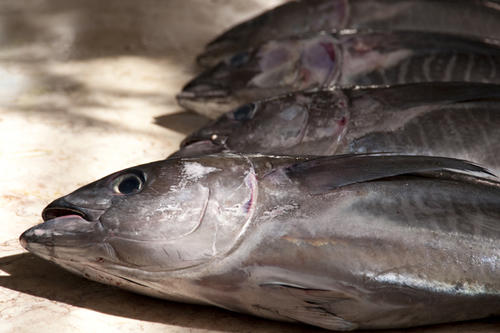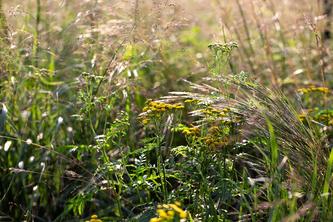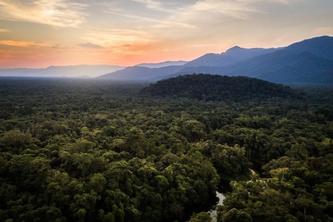
Temperature variations affect catches from marine fisheries, but diversified harvests help keep food supplies sufficient, U of M-led study says
Fisheries that selectively fish for species with different traits may be able to mitigate the damaging effects of short-term temperature variations on fisheries catches, a new study by University of Minnesota researchers shows.
The study, recently published in Proceedings of the Royal Society B, a British scientific journal, shows how extreme variations in temperature within a single year can lead to declines in fish yields, globally. Because fish are an important part of the human diet, maintaining a consistent supply across marine fisheries is significant as the climate becomes more variable and demands rise to feed a growing population.
The authors also found, however, that if fisheries sought more functional diversity—a range of fish with varying abilities to cope with temperature fluctuations—overall declines in fisheries yields are less severe globally.
"As the Earth’s climate changes, temperature variations are likely to become more frequent. While it’s well documented that the distribution of fish populations are shifting as water temperatures change, this study is among the first to look at how short-term variations impact seafood production," said lead author Laura Dee, a post-doctoral associate in the U of M’s applied economics department and Institute on the Environment.
Fishery managers could put the findings to use by using strategies like encouraging fishermen to hold permits for several different kinds of fish or target to species throughout the year to promote more diversified fishing, Dee said.
“Environmental variability is predicted to change in many places as our climate changes, so there is a need for scientists and managers to place more emphasis on understanding the effects of short-term variability, like heat waves and extreme storms, on the benefits we receive from nature, like food production from our oceans.”
The project was funded through a grant from the National Science Foundation. Collaborators included scientists from the University of California-Santa Barbara and Florida State University, as well as Dee’s colleague Dr. Steve Miller, from the Applied Economics Department at the U of M.
- Categories:
- Agriculture and Environment





